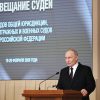When will the Covid-19 vaccine begin to have an effect on the nation?
The government has pledged to offer vaccines to 15 million people – the over-70s, healthcare workers and those required to shield by mid-February, and millions more by spring. This should slowly bring the virus under control although it will take many weeks before we can be sure the vaccine is having an effect. Numbers of daily cases of Covid-19 may drop but that decline could simply be due to impact of current lockdown measures. Only when hospital admissions start to reduce significantly will we be sure the vaccine is having an impact. Then there could be be a slackening of lockdown measures. Few scientists believe that will happen before Easter, however.
What will happen in Spring?
After the over-70s receive a dose, over-60s will be eligible, adding another 5 million people.However, these first jabs will then have to be followed up with 20 million second inoculations because there should be a gap of no greater than 12 weeks between the first and second administrations of the vaccine, scientists have warned. Once these second doses have been given, vaccines can be doled out to others.
Will the vaccine slow down the rate of transmission of Covid-19?
This is one of the key questions that scientists will be seeking to answer over coming weeks. The vaccines now being administered are designed to protect people from severe side-effects of the disease. They were not developed to block transmission of the virus. Thus a person could be protected against serious illness but still carry the virus and spread it others. However, most scientists believe that the vaccines should reduce viral load in those inoculated and there should then be a reduction in transmission. The degree of that transmission reduction will be a key factor in releasing the nation from lockdown.
What will happen during the second half of 2021?
The government has ordered sufficient doses of Covid vaccine for the entire population of the UK. However, vaccines do not provide 100% protection and not everyone will allow themselves to be inoculated. Lack of blanket immunity will therefore result in outbreaks of Covid-19 through the year and these could intensify next winter. At the same time, new variants of the virus may emerge and may require the manufacture of reconfigured vaccines to tackle them. Nor is it known how long current vaccines will protect against severe Covid-19 symptoms. As a result, most scientists believe annual vaccinations against variants of the disease will be needed for years to come.






















































Свежие комментарии